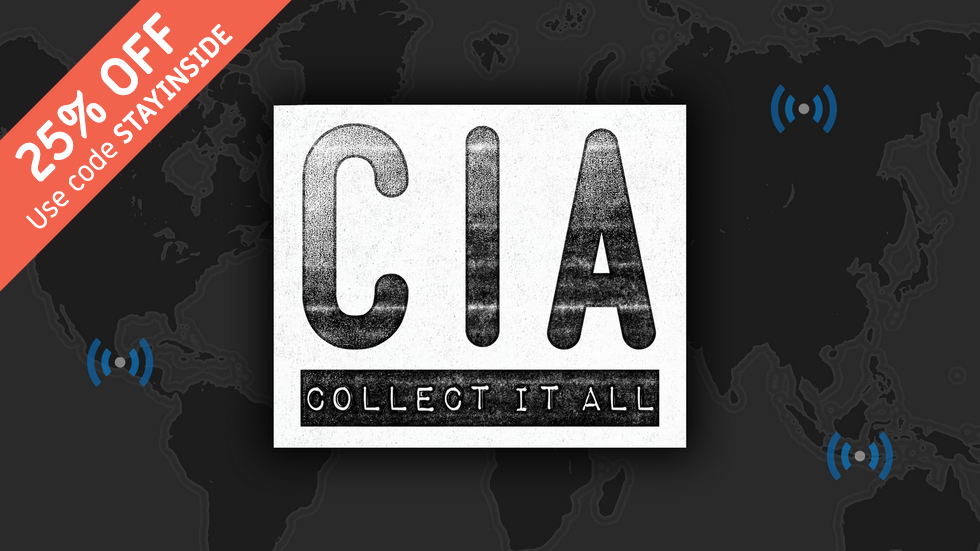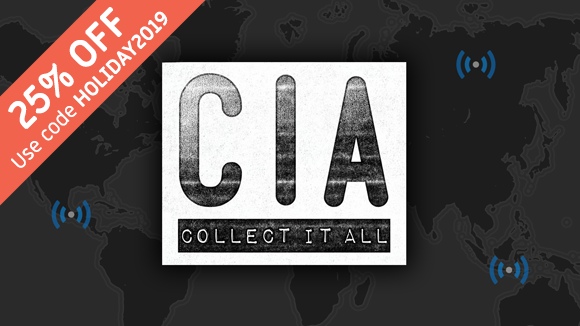from the sticking-it-to-the-CIA-by-burning-yourself-to-the-ground dept
The accused leaker of CIA phone hacking tools -- the "Vault 7" collection released by Wikileaks in early 2017 -- is still awaiting trial. To pass the time, alleged leaker Joshua Schulte is suing the government for $50 billion and, apparently, generating a whole lot of evidence against himself.
The criminal complaint against Schulte contained far more than accusations of leaking sensitive material. Searches performed on Schulte's devices also turned up 10,000 child porn images and a lot of copyrighted content Schulte was sharing from his own server. Stealing government secrets + child porn + copy infringement: that's the weirdness this case is.
Schulte continues to make the worst case for himself. While some leakers have acted more like whistleblowers, making the public aware of hidden misconduct or civil rights abuses, Schulte has presented himself as a martyr for his own cause. This isn't helping his criminal case (or the civil lawsuit he's filed). After being jailed, Schulte continued to leak classified info from his jail cell, using contraband phones and his access to the evidence the government planned to use against him.
The government pointed this out to the court in November 2018. A recent filing by the government (h/t Emptywheel) details Schulte's post-arrest efforts to continue leaking classified info to journalists -- including the use of his family members to contact journalists and set up new encrypted communications channels for him.
Unfortunately for Schulte, the seizure of contraband from his cell has given the government a lot more evidence to work with, especially when it comes to proving his criminal intent. Schulte really wanted a white knight, but none arrived. Taking matters into his own hands (and ignoring the advice of his lawyer), Schulte appears to have engaged in one-man war against the federal government, armed with nothing but shovels.
The letter [PDF] to the court details the contents of notebooks seized from Schulte's cell, as well as communications made to his family and members of the press. While under a protective order forbidding him from discussing the government's search warrants publicly, Schulte sent the warrant (along with several articles he had written) to a reporter. His desire to wage an "information war" against the government while behind bars was stymied by his inability to draft fellow combatants.
Because he was incarcerated, the defendant enlisted his family to communicate with reporters and to post the defendant’s articles online, including on a public Facebook page (the “John Galt Facebook Page”). While the defendant’s family was able to post a version of the defendant’s articles on the John Galt Facebook Page, the articles apparently did not result in the swell of press attention for which the defendant hoped. Over the summer and into the fall of 2018, the defendant grew angrier at his detention, but also his family’s inability, and eventually unwillingness, to publish all of the defendant’s articles and the media’s apparent lack of interest in the defendant’s case.
From there, Schulte went on to attempt to scrub his Gmail accounts of incriminating communications, and to create a number of new accounts for ProtonMail, Twitter, and Facebook so he could continue distributing classified info he knew or had access to. The letter describes four separate occasions Schulte revealed classified info to family members or the public. In total, the letter describes a pretty comprehensive case Schulte has built against himself, detailing everything from the deletion of evidence to the continuous generation of new evidence via Schulte's handwritten "information war" plans.
There's also stuff in there that undermines the whistleblower narrative Schulte has tried to craft.
On this page in the Red Notebook, the defendant states: “If govt doesnt pay me $50 billion in restitution & prosecute the criminals who lied to the judge and presented this bs case then I will visit every country in the world and bear witness to the treachery that is the USG. I will look to breakup diplomatic relationships, close embassies, and U.S. occupation across the world & finally reverse U.S. jingoism. If this is the way the U.S. govt treats one of their own, how do you think they treat allies?” This statement is obviously Intent Evidence—it shows not only that the defendant is growing increasingly frustrated, but, more importantly, that his frustration has risen to the point that he now—according to his own words—plans to destroy the United States’ relationships with its allies, leading to, for example, the shuttering of U.S. embassies in other nations.
The "intent evidence" here sounds more like a personal vendetta than the dissemination of classified info for the good of the public.
[T]he defendant recommends to U.S. intelligence agency employees to “send all your govt’s secrets here: WikiLeaks” until the U.S. government “honors” their service.
There are also things like this, that show even more hubris than the above examples suggest. Here's Schulte stating he feels his family should be willing to put themselves at legal risk for him.
The defendant states: “I text my dad from whatsapp & signal incessantly & finally got a response @ 1% battery. I said please put articles on drafts in gmail. Response: My lawyer advised me not to. Fucking incredible. Fucking. Incredible.”
And here he is mocking the FBI.
[T]he defendant also goes on to write that he designed his “own crypto – how better to fool bafoons like forensic examiners and the FBI then to have custom software that doesn’t fit into their 2-week class where they become forensic ‘experts.’” The defendant then provides classified details of specifics of his work at the CIA.
The government's letter tells the court there's plenty of evidence it wishes to use against Schulte, a lot of it gleaned from the "information war" he tried to wage from the Metropolitan Correctional Center in Manhattan.
[T]he MCC Notebooks and the Malware Article help to demonstrate a pattern of conduct that is highly probative of Schulte’s guilt of the WikiLeaks charges. In both instances, the defendant (1) grew infuriated with components of the U.S. government; (2) threatened to expose allegedly damaging information about the CIA to coerce the agency into acting as Schulte wished; and (3) used technologically sophisticated means to conceal his actions, using encrypted accounts and cellphones, and IP-masking techniques at the MCC and deleting logs and securely wiping removable media at the CIA.
Not much of this sounds like whistleblowing. If there is something honorable or altruistic in Schulte's actions, it can't be found here. That's not saying it doesn't exist. The government is a notoriously unreliable narrator and this filing only covers the stuff prosecutors think will help prove their case. But Schulte's narration isn't that reliable either. And he still doesn't appear to realize that acting in your own interest isn't always the same thing as acting in your best interest.
Filed Under: cia, copyright, joshua schulte, leaks, vault 7







